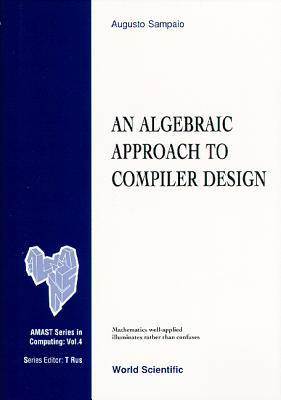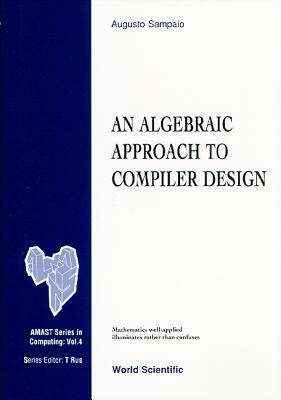
Je cadeautjes zeker op tijd in huis hebben voor de feestdagen? Kom langs in onze winkels en vind het perfecte geschenk!
- Afhalen na 1 uur in een winkel met voorraad
- Gratis thuislevering in België vanaf € 30
- Ruim aanbod met 7 miljoen producten
Je cadeautjes zeker op tijd in huis hebben voor de feestdagen? Kom langs in onze winkels en vind het perfecte geschenk!
- Afhalen na 1 uur in een winkel met voorraad
- Gratis thuislevering in België vanaf € 30
- Ruim aanbod met 7 miljoen producten
Zoeken
Omschrijving
This book investigates the design of compilers for procedural languages, based on the algebraic laws which these languages satisfy. The particular strategy adopted is to reduce an arbitrary source program to a general normal form, capable of representing an arbitrary target machine. This is achieved by a series of normal form reduction theorems which are proved algebraically from the more basic laws. The normal form and the related reduction theorems can then be instantiated to design compilers for distinct target machines. This constitutes the main novelty of the author's approach to compilation, together with the fact that the entire process is formalised within a single and uniform semantic framework of a procedural language and its algberaic laws. Furthermore, by mechanising the approach using the OBJ3 term rewriting system it is shown that a prototype compiler is developed as a byproduct of its own proof of correctness.
Specificaties
Betrokkenen
- Auteur(s):
- Uitgeverij:
Inhoud
- Aantal bladzijden:
- 204
- Taal:
- Engels
- Reeks:
- Reeksnummer:
- nr. 4
Eigenschappen
- Productcode (EAN):
- 9789810223915
- Verschijningsdatum:
- 19/04/1997
- Uitvoering:
- Hardcover
- Formaat:
- Genaaid
- Afmetingen:
- 157 mm x 218 mm
- Gewicht:
- 408 g

Alleen bij Standaard Boekhandel
+ 220 punten op je klantenkaart van Standaard Boekhandel
Beoordelingen
We publiceren alleen reviews die voldoen aan de voorwaarden voor reviews. Bekijk onze voorwaarden voor reviews.









